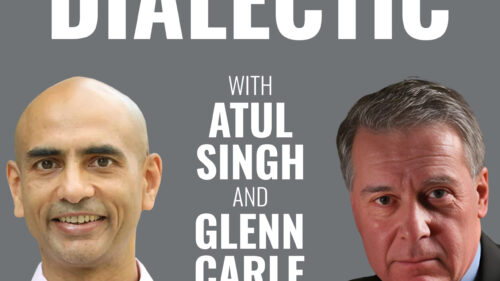American liberal democracy, once seen as a beacon of free speech and critical thinking in the world, now faces an unprecedented threat from within. This threat does not stem from foreign enemies, but from a sinister alliance between militaristic policies and America’s unconditional support for Israel.
This alliance has displaced universities — the cradle of free thought and critical dialogue — from their rightful position and turned the US government into a leviathan that responds to any dissenting voice with brutal repression. This trend, bearing alarming similarities to Israel’s actions against Palestinians and its critics, not only threatens liberal democracy but also endangers America’s standing as an intellectual leader in the world.
The US’ staunch support for Israel: a source of growing divide among Americans
America’s unconditional support for Israel, particularly during the recent war between Israel and Hamas, has deepened a divide within US society. A recent Pew Research Center poll (March 2025) shows that American support for Israel has declined and is no longer unconditional. According to the survey, 53% of Americans hold a negative view of Israel, an 11-point increase since 2022. This shift is particularly pronounced among Democrats and people under the age of 30, with 33% of this group expressing sympathy for Palestinians and only 14% for Israelis.
The primary causes of this decline include images and news from the Gaza war circulating on social media — especially among the younger “TikTok generation” — as well as dissatisfaction with the policies of the Biden administration and previously the Trump administration in support of Israel. Even among Republicans, negative views of Israel have increased from 27% in 2022 to 37% in 2025, especially among those under 49. These data reflect a shift in US public opinion, especially among younger groups and Democrats, away from traditional support for Israel.
This fundamental shift in public attitude has manifested in widespread student protests across universities nationwide. In other words, if universities are seen as the vanguard of public opinion, then opposition to America’s unconditional support for Israel’s genocide in Gaza is a natural and external expression of the changing attitudes of Americans. These protests, often met with baseless accusations such as “antisemitism” or “supporting terrorism,” signal a deep crisis in American democracy.
Government crackdowns on peaceful student protests: a threat to freedom of speech
Universities, once venues for open dialogue and fearless critique, have now become prime targets of government assault. Students who protest against America’s militaristic policies or its support for what many call genocide in Gaza are being met with severe repression. According to The Intercept, universities like Columbia and the University of California, Los Angeles (UCLA) have witnessed peaceful protests being quashed by police force, student expulsions, and faculty suspensions. These actions are reminiscent of the Vietnam War era, when dissenters were accused of treason.
However, today’s crackdowns are even more intense: international students face visa cancellations and threats of deportation, their social media activity is monitored, and critical faculty members risk losing their jobs. Human Rights Watch has described these actions as clear violations of free speech and has warned that suppressing protests undermines American democracy from within.
America’s repressive policies against protesting students bear disturbing similarities to Israel’s actions against Palestinians and its critics. In the West Bank, Palestinians resisting occupation face displacement, arbitrary detention, and the stripping of basic rights. Similarly, in the US., students who protest unconditional support for Israel or militaristic policies face denial of their right to education, visa cancellations, and even threats of citizenship revocation.
This approach, which treats any criticism as a threat to national security, signals a dangerous turn toward authoritarianism. In Israel, human rights activists and critical journalists are often ostracized with labels like “anti-Israel”. In the US as well, students and faculty who criticize Israeli policies face similar accusations and are denied their rights. These parallels, rooted in a repressive mindset, point to a profound deviation from the principles of liberal democracy.
America’s move towards populism and nationalism: changes to the U.S.’ global image
Current US policies, influenced by neoconservative and militaristic ideology, are pushing the country toward an illiberal democracy. A report from the Institute for Science and Policy shows that both the US and Israel are moving away from democratic values and toward populism and nationalism. In the US, this trend is reflected in cuts to research funding, heavy taxation on top universities, and widespread surveillance of international students. These policies not only harm scientific innovation but also weaken America’s status as a global destination for elite minds.
According to NAFSA: Association of International Educators, the world’s largest nonprofit association dedicated to international education and exchange, international students contribute over $40 billion annually to the US economy and support approximately 380,000 jobs. Nevertheless, restrictive visa policies and surveillance threaten this advantage. Online searches for Ph.D. programs in the US have dropped by 25% to 40%, while interest in similar programs in Australia and Switzerland is on the rise.
Unconditional support for Israel and suppression of dissenting voices carry far-reaching implications for America’s global standing. According to the Quincy Institute, these policies violate international law and undermine US objectives in the Middle East, such as the two-state solution. Cuts to research funding — the backbone of scientific innovation — and heavy taxation of top universities limit their independence and reduce their capacity to attract global talent. These policies not only damage the US economy but also weaken the country’s soft power — its ability to inspire and attract globally.
The importance of maintaining democratic discourse
Four decades ago, what drew many to the US was not just the quality of education and research, but the idealistic spirit that made the country a destination for dreamers and thinkers. This “American Dream” inspired generations, but today it is under threat. When the state suppresses critics instead of engaging them in dialogue, it not only loses its moral authority but also endangers its own future.
The repression of student protests, restrictions on free speech and denial of education simply for opposing militaristic policies are signs of a fascist-neoconservative regime where citizens’ basic rights depend on their silence in the face of state policy.
America stands at a historic crossroads: it must either return to liberal democratic principles or continue down the path of authoritarianism. Restoring universities as centers of free thought, ending the suppression of protests, and rethinking unconditional support for Israel are essential steps to reviving America’s democratic spirit. Otherwise, the country will not only lose its place as a global intellectual leader but also become a leviathan that devours its own children.
To preserve liberal democracy, the US must create an environment where criticism of militaristic policies — whether toward Israel or anywhere else — is not only tolerated but encouraged as a vital part of democratic discourse.
[Claudia Finak-Fournier edited this piece.]
The views expressed in this article are the author’s own and do not necessarily reflect Fair Observer’s editorial policy.
Support Fair Observer
We rely on your support for our independence, diversity and quality.
For more than 10 years, Fair Observer has been free, fair and independent. No billionaire owns us, no advertisers control us. We are a reader-supported nonprofit. Unlike many other publications, we keep our content free for readers regardless of where they live or whether they can afford to pay. We have no paywalls and no ads.
In the post-truth era of fake news, echo chambers and filter bubbles, we publish a plurality of perspectives from around the world. Anyone can publish with us, but everyone goes through a rigorous editorial process. So, you get fact-checked, well-reasoned content instead of noise.
We publish 3,000+ voices from 90+ countries. We also conduct education and training programs
on subjects ranging from digital media and journalism to writing and critical thinking. This
doesn’t come cheap. Servers, editors, trainers and web developers cost
money.
Please consider supporting us on a regular basis as a recurring donor or a
sustaining member.
Will you support FO’s journalism?
We rely on your support for our independence, diversity and quality.








Comment